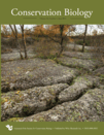A free GEO/Ramsar webinar titled "Wetlands, Biodiversity and the Role of Earth Observations" is taking place today - 18 June 2015. The webinar is designed for anyone with an interest in or passion for biodiversity and wetlands - students, scientists, experts, or anyone with a general interest in one or more of these topics – who wants to learn from these vast global communities.
This is the first of a series of planned webinars on the role of Earth observations in monitoring and sustaining biodiversity and wetlands. The webinars will be hosted by the GEO Biodiversity Observation Network (GEO BON) and GEO Water Community, together with the Ramsar Secretariat and will include leading experts from the global communities highly engaged in biodiversity, wetlands and Earth observations.
To watch the event and register follow the link: https://blbgroup.leadpages.net/webinar-wetlands/
The 9th GEO European Projects Workshop is now taking place on 15 and 16 June 2015 in Copenhagen, co-organised by the Danish Meteorological Institute, the European Commission and the European Environment Agency.
While registration is now closed, due to demand the event will be recorded and streamed live on http://stream.dvc.dk/9thgeo/ for those who are interested to follow.
The objective of the GEO European Projects Workshop is to bring together European players interested in and actively contributing to the Global Earth Observations System of Systems (GEOSS). The aim is to enable participants to present their work and discuss how Europe can contribute to this international effort. Its timing has been set to maximise early insight and awareness of the new Implementation plan for the next decade of GEO as well as input to and awareness of Horizon 2020 work programme for 2016 and 2017.
Building on the experience from previous GEO European Projects Workshops, it is intended to continue working towards greater involvement of the European private sector, especially SMEs, in GEO. The workshop will also focus on user engagement, and the priorities for future flagship initiatives, foreseen to be strengthened in the next phase of GEO, in order to fulfil GEO's ambition to provide information for decision making.
More information available on the official event page: http://geo.pbe.eionet.europa.eu/
A new issue in Science for Environment Policy "Monitoring Nature: Research Developments" provides a flavour of recent work by scientists in the area of biodiversity monitoring to highlight both up-to-date approaches to conservation and evaluation, and how long-term monitoring data could be used more effectively in management and policy decisions.
This Issue also includes topics such as monitoring to environmental policy, remote sensing, citizen science, DNA barcoding and more.
Find this issue on the SEP website here, or go straight to download.
Stakeholders from across Europe are coming together at Green Week to discuss biodiversity and ecosystem services in Europe. The European Environment Agency (EEA) will present its latest findings, recently published in its reports 'State of nature in the EU' and 'The European Environment – state and outlook 2015'.
The European Environment Agency's recent assessments, including The European environment – state and outlook 2015 and State of Nature in the EU, show that Europe's biodiversity is still being eroded, despite significant local improvements. To halt the loss of biodiversity, stabilise and restore degraded ecosystems, the European Union has adopted the EU Biodiversity Strategy to 2020, which sets various targets and actions. An effective implementation of the strategy depends, among others, on the data and information available on biodiversity in Europe. Through its extensive network and close collaboration with partners, the EEA contributes extensively to the knowledge base on Europe's biodiversity.
Read the full original news story on the EEA website.
A Special Section: "Conservation in Europe as a model for emerging conservation issues globally" is featured in the Early View module of Conservation Biology online. The section includes:
Mapping opportunities and challenges for rewilding in Europe
Silvia Ceaușu, Max Hofmann, Laetitia M. Navarro, Steve Carver, Peter H. Verburg and Henrique M. Pereira
DOI: 10.1111/cobi.12533
Conservation in Europe as a model for emerging conservation issues globally
Luigi Boitani and William J. Sutherland
DOI: 10.1111/cobi.12530
The alignment of agricultural and nature conservation policies in the European Union
Ian Hodge, Jennifer Hauck and Aletta Bonn
DOI: 10.1111/cobi.12531
Scenarios of large mammal loss in Europe for the 21st century
Carlo Rondinini and Piero Visconti
DOI: 10.1111/cobi.12532
L. Maiorano, G. Amori, A. Montemaggiori, C. Rondinini, L. Santini, S. Saura and L. Boitani
DOI: 10.1111/cobi.12535
The role of agri-environment schemes in conservation and environmental management
Péter Batáry, Lynn V. Dicks, David Kleijn and William J. Sutherland
DOI: 10.1111/cobi.12536
Framing the relationship between people and nature in the context of European conservation
John D. C. Linnell, Petra Kaczensky, Ulrich Wotschikowsky, Nicolas Lescureux and Luigi Boitani
DOI: 10.1111/cobi.12534




 RSS news
RSS news





